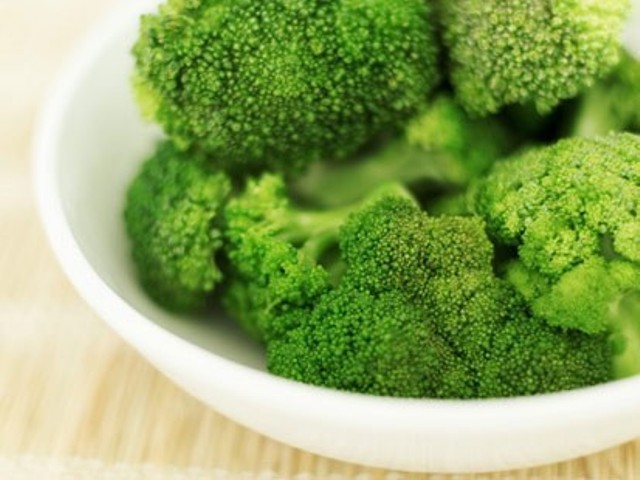How Glutathione Supports Detoxification in the Liver

The liver is one of the most vital organs in the human body, playing a key role in detoxification, metabolism, and overall health. Among the many substances that contribute to liver function, glutathione stands out as a crucial antioxidant and detoxifier. This article delves into the role of glutathione in liver detoxification, explaining how it works, why it is important, and how you can support your liver’s glutathione levels to maintain optimal health.
Understanding Glutathione
Glutathione is a small molecule made up of three amino acids: cysteine, glutamine, and glycine. It is found in every cell of the body but is most concentrated in the liver, where it plays a pivotal role in detoxification. Glutathione functions primarily as an antioxidant, neutralizing harmful free radicals and reactive oxygen species (ROS) that can damage cells. It also participates in other vital processes, such as immune response and protein synthesis.
The Role of Glutathione in Liver Detoxification
The liver is responsible for processing toxins and waste products from the body, converting them into substances that can be excreted through urine or bile. Glutathione is critical to this detoxification process, particularly in its role in the liver’s Phase II detoxification pathway.
Phase I and Phase II Detoxification
The liver detoxifies substances in two main phases:
- Phase I Detoxification: In this phase, enzymes such as cytochrome P450 oxidize toxins, making them more water-soluble and reactive. While this makes the toxins easier to excrete, it also generates free radicals, which can be harmful if not neutralized.
- Phase II Detoxification: Here, the liver uses various substances, including glutathione, to neutralize these reactive intermediates, making them safe for excretion. Glutathione binds to the toxins, forming glutathione conjugates that can be easily excreted through bile or urine.
How Glutathione Neutralizes Toxins
During Phase II detoxification, glutathione acts as a substrate for several enzymes, such as glutathione S-transferase (GST), which catalyzes the conjugation of glutathione with toxic substances. This process neutralizes the toxins and allows the liver to eliminate them efficiently.
Glutathione is also involved in the regeneration of other antioxidants, such as vitamins C and E, which are essential for protecting the liver from oxidative stress. Without sufficient glutathione, the liver’s ability to detoxify harmful substances is significantly impaired, leading to the accumulation of toxins and potential liver damage.
Factors That Deplete Glutathione Levels
Several factors can deplete glutathione levels in the liver, compromising its ability to detoxify toxins effectively. These include:
- Poor Diet: A diet lacking in the essential amino acids and nutrients required for glutathione synthesis can lead to depleted levels.
- Chronic Stress: Prolonged stress increases the production of free radicals, which can overwhelm the liver’s glutathione stores.
- Alcohol Consumption: Excessive alcohol intake increases oxidative stress in the liver, rapidly depleting glutathione levels.
- Environmental Toxins: Exposure to pollutants, heavy metals, and chemicals can exhaust the liver’s glutathione reserves as it works to detoxify these substances.
- Aging: As we age, our body’s ability to produce and recycle glutathione decreases, making dietary strategies more important.

Boosting Glutathione Levels Naturally
Maintaining adequate glutathione levels is crucial for liver health and overall detoxification. Here are some ways to naturally boost your body’s glutathione production:
1. Consume Sulfur-Rich Foods
Sulfur is a key component of glutathione. Foods rich in sulfur, such as garlic, onions, cruciferous vegetables (like broccoli, Brussels sprouts, and kale), and protein-rich foods like eggs and lean meats, can support glutathione production. Check out the best glutathione supplement uk to find additional tips and information about how glutathione supports detoxification in the liver.
2. Increase Intake of Antioxidant-Rich Foods
Antioxidants like vitamins C and E help regenerate glutathione in the body. Include plenty of fruits and vegetables, such as citrus fruits, berries, and spinach, in your diet.
3. Consider Glutathione Precursors
N-acetylcysteine (NAC) is a well-known precursor to glutathione. Adding NAC to your diet can help boost glutathione levels, especially in individuals with high oxidative stress.
4. Regular Exercise
Moderate exercise has been shown to increase glutathione levels, helping to enhance the body’s detoxification processes. However, excessive exercise can have the opposite effect, so it’s important to find a balance.
5. Adequate Sleep
Quality sleep is essential for the body’s detoxification processes, including the production and recycling of glutathione. Aim for 7-9 hours of sleep per night to support your liver’s detoxification efforts.
Other Ways to Increase Glutathione Levels
In some cases, dietary intake and lifestyle changes may not be enough to maintain optimal glutathione levels, especially in individuals with high toxic burdens or chronic health conditions. In such cases, additional methods can be beneficial.
Types of Glutathione Enhancement
- Oral Glutathione: Available in capsules or tablets, oral glutathione can help boost levels in the body. However, the bioavailability of oral glutathione is a subject of debate, with some studies suggesting that it is poorly absorbed.
- Liposomal Glutathione: This form of glutathione is encapsulated in liposomes, which may enhance absorption and effectiveness.
- Intravenous Glutathione: Administered directly into the bloodstream, IV glutathione provides immediate and high levels of glutathione, making it a popular choice for individuals with significant oxidative stress or liver damage.
- N-Acetylcysteine (NAC): As a precursor to glutathione, NAC is often recommended to support glutathione production, especially in individuals with depleted levels.
Potential Side Effects of Glutathione Enhancements
While enhancing glutathione levels is generally considered safe, some individuals may experience side effects such as abdominal cramps, bloating, or allergic reactions. It’s important to consult with a healthcare provider before starting any new regimen, especially if you have pre-existing health conditions or are taking other medications.
Conclusion
Glutathione plays an indispensable role in supporting the liver’s detoxification processes. By neutralizing toxins and protecting the liver from oxidative stress, glutathione helps maintain optimal liver function and overall health. To support your liver’s glutathione levels, focus on a diet rich in sulfur and antioxidants, consider glutathione precursors like NAC, and adopt a healthy lifestyle that includes regular exercise and adequate sleep.


 How to Create a Successful Financial Freedom Plan
How to Create a Successful Financial Freedom Plan  How to Use Social Media for Brand Building
How to Use Social Media for Brand Building  SEO Tools vs. Manual Optimization
SEO Tools vs. Manual Optimization  How Interest Rates Affect Home Prices
How Interest Rates Affect Home Prices  Pets Analysis Online Ecommerce Store
Pets Analysis Online Ecommerce Store  Medical Alert System Costs
Medical Alert System Costs